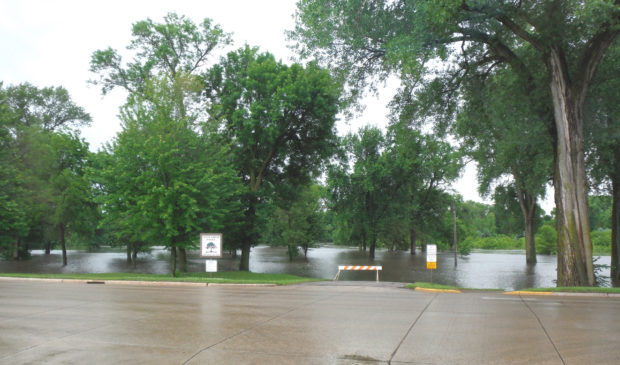Audit: City needs new flood buyout policy
Thursday, February 9, 2017 by
Jo Clifton The Office of the City Auditor found that the city of Austin has provided the full cost of replacement housing for people displaced by flooding in the Onion Creek and Williamson Creek flood buyout areas, just as it was directed to do by City Council policy. That policy has proved to be expensive.
Members of the Council Audit & Finance Committee heard a report on the audit at Monday’s meeting.
Altogether, the city paid approximately $12 million for 164 homes, most of which were in the Onion Creek floodplain. According to the audit, the city paid about $7 million more overall for relocation assistance than it might have paid under the less-generous federal guidelines. But part of the reason is Austin’s high property values.
Auditors concluded that the city’s model for flood buyout projects provides “consistent relocation benefits to displaced owners” and that the city has done a good job of implementing that model.
The audit said, “The model adopted by the City has helped to ensure consistent benefits between displaced owners and project areas.”
But the decision by Council to provide the full benefits has resulted in higher costs for the city, according to the audit. And the city does not have a uniform policy for flood buyouts throughout Austin, which auditors recommended that it remedies.
District 8 Council Member Ellen Troxclair had the most questions about the cost of the buyouts. Under federal requirements, replacement housing assistance is available, with additional assistance if comparable housing is not available, within a cap of $31,000.
Austin and Harris County provide funding for replacement housing above the $31,000 limit. Travis County, on the other hand, provides replacement assistance only up to the $31,000 cap.
For example, if the original home in the Onion Creek area was valued at $135,000 and a comparable home cost $190,000, Austin would end up paying $196,000 when relocation and moving costs are added in, according to the report. If the city stuck with the $31,000 federal cap, the city would pay $172,000 for the same house, the amount Travis County would pay for the same family to relocate.
Three other entities studied by the auditors – the state of New Jersey, King County in Washington state and metropolitan Nashville – provide no replacement housing assistance, relying only on federal dollars.
Mayor Pro Tem Kathie Tovo, who chairs the committee and served on Council during both the 2013 and 2015 Halloween floods, said that when making a decision on what to pay for to replace flooded houses, “We had this very conversation about what we were obligated to do. But the Council made a very deliberate choice that directed our staff to do just what they’ve done – and the audit has found that they did everything in compliance with that policy.”
Tovo asked why auditors did not study other entities that might provide more generous payments. She was told that those other entities were buying fewer houses and seemed less comparable to Austin.
The city’s Watershed Protection Department works with the Office of Real Estate Services to move people out of the flood-prone areas. The city hired HDR Inc. to help evaluate plans and costs of the program.
Floodplains cover nearly 10 percent of Austin’s land area, according to the audit, and anyone who has lived in Austin for more than a year has probably become acquainted with frequent flash flooding.
According to a memo from Lauraine Rizer, the city’s real estate officer, the Flood Mitigation Task Force “recommended adopting a consistent policy to be used across all buyout programs … so that all buyout program participants have access to equitable benefits.”
The Environmental Commission has now formed a subcommittee to continue the work of the Flood Mitigation Task Force. That committee is expected to start meeting next week.
Download (PDF, 1.87MB)
Photo by Ruin Raider made available through a Creative Commons license.
The Austin Monitor’s work is made possible by donations from the community. Though our reporting covers donors from time to time, we are careful to keep business and editorial efforts separate while maintaining transparency. A complete list of donors is available here, and our code of ethics is explained here.
You're a community leader
And we’re honored you look to us for serious, in-depth news. You know a strong community needs local and dedicated watchdog reporting. We’re here for you and that won’t change. Now will you take the powerful next step and support our nonprofit news organization?



